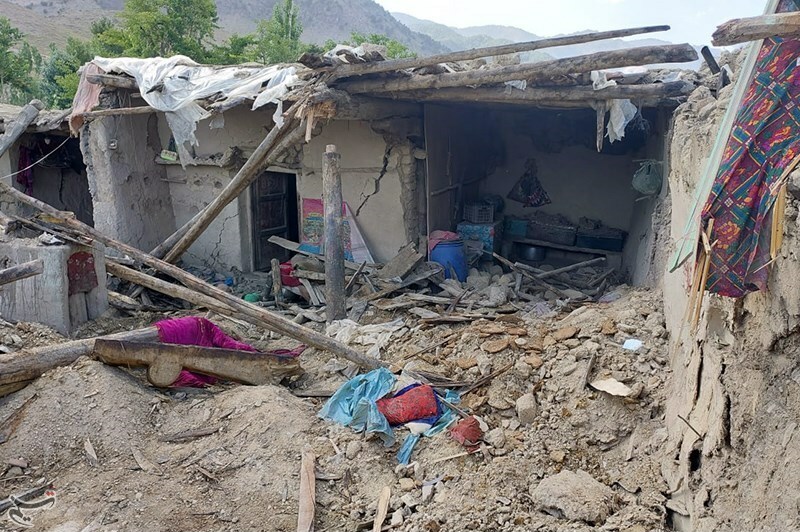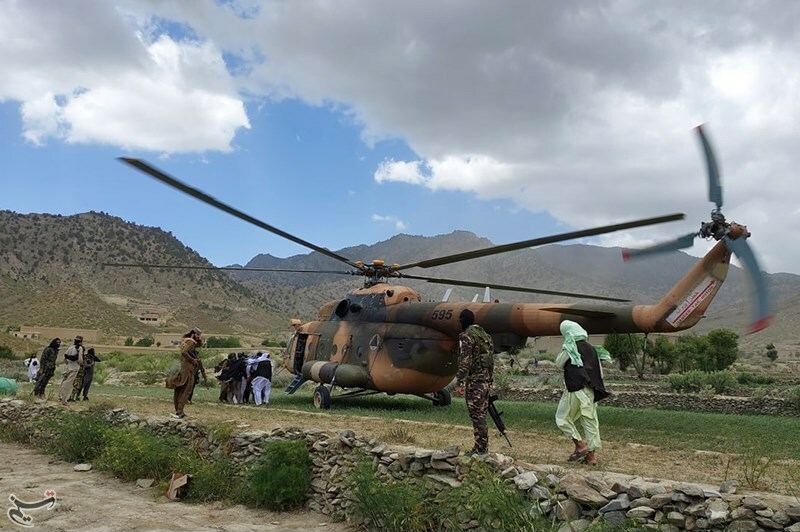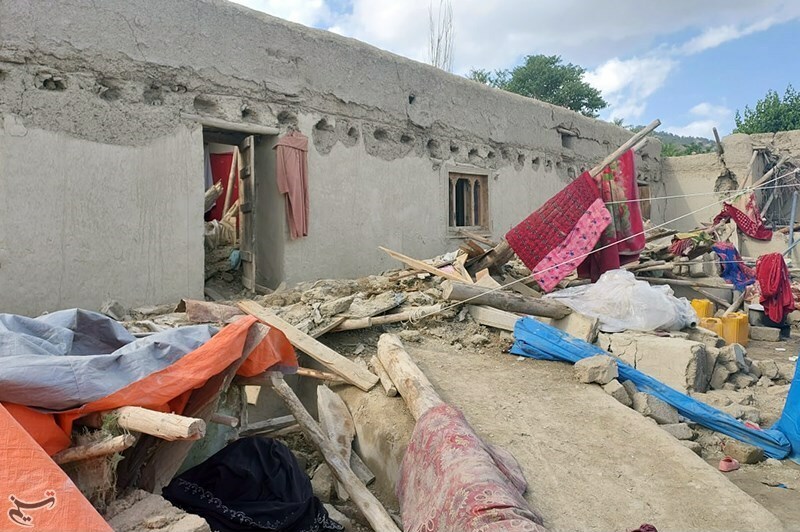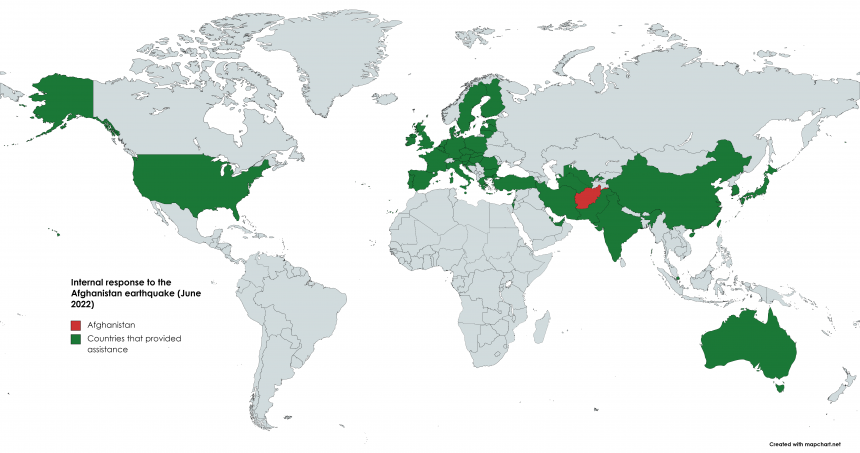Afghanistan’s state-run news agency – Bakhtar News Agency – announced the earthquake in the country’s east has killed 1,000 people and injured 1,500 others. The toll IS expected to rise as desperate rescuers dig through collapsed dwellings.
The quake struck about 44 km (27 miles) from the southeastern city of Khost, near the border with Pakistan, the U.S. Geological Survey (USGC) said. It was the deadliest in Afghanistan since 2002. Haibatullah Akhundzada, the supreme leader of the ruling Taliban, offered his condolences in a statement.
The quake struck hardest in the rugged east, where people already lead hardscrabble lives in a country in the grip of a humanitarian disaster made worse by the Taliban takeover in August.

Houses were reduced to rubble and bodies swathed in blankets lay on the ground, photographs on Afghan media showed.
Helicopters were deployed in the rescue effort to reach the injured and fly in medical supplies and food, interior ministry official Salahuddin Ayubi said.
Most of the confirmed deaths were in the eastern province of Paktika, where 255 people were killed and more than 200 injured, Ayubi added. In the province of Khost, 25 were dead and 90 had been taken to hospital.
The European-Mediterranean Seismological Centre put the earthquake’s magnitude at 6.1, though the United States Geological Survey (USGS) said it was 5.9.
Disaster management officials said at least 1,000 are dead and 600 injured. However, local officials put the number of injured higher.
“1,000 dead, 1,500 injured, and this number might go up, many families have been lost. Injured people have been taken to Kabul and Gardez,” Mohammad Amin Hozaifa, information and culture director of Paktika, told Reuters.
“People are digging grave after grave,” he added. “It is raining also, and all houses are destroyed. People are still trapped under the rubble.”
The death toll climbed steadily all day as news of casualties filtered in from hard-to-reach areas in the mountains, and the country’s supreme leader, Hibatullah Akhundzada, warned it would likely rise further.
Earlier, a tribal leader from Paktika said survivors and rescuers were scrambling to help those affected.
“The local markets are closed and all the people have rushed to the affected areas,” Yaqub Manzor told AFP by telephone.
Photographs and video clips posted on social media showed scores of badly damaged mud houses in remote rural areas. Some footage showed local residents loading victims into a military helicopter.
Adding to the challenge for Afghan authorities is recent flooding in many regions, which the disaster agency said had killed 11, injured 50 and blocked stretches of highway.
Wednesday’s quake was the deadliest since 2002. According to USGS, the earthquake occurred at 1:54am (PST), about 44 km (27 miles) from the city of Khost, near the Pakistan-Afghanistan border, at a depth of 51 km. The tremors were felt over some 500km by about 119 million people in Pakistan, Afghanistan and India.
In Pakistan, tremors were felt in Peshawar, Islamabad, Lahore, Kohat, Mohmand, Swat, Buner and other parts of Punjab and KP.
People left their homes in panic for safer places. “It was strong,” said a resident of Peshawar.
A report by the Khyber Pakhtunkhwa Disaster Management Authority said a man, resident of Lakki Marwat was killed in the earthquake after the roof of his room collapsed.
The disaster comes as Afghanistan has been enduring a severe economic crisis since the Taliban took over August, as US-led international forces were withdrawing after two decades of war.
In response to the Taliban takeover, many governments have imposed sanctions on Afghanistan’s banking sector and cut billions of dollars worth of development aid.

Humanitarian aid has continued and international agencies such as the United Nations operate in the country.
An Afghan foreign ministry spokesman said they would welcome help from any international organisation.

Large parts of South Asia are seismically active because a tectonic plate known as the Indian plate is pushing north into the Eurasian plate.
In 2015, an earthquake struck the remote Afghan northeast, killing several hundred people in Afghanistan and nearby northern Pakistan.
Pakistan promises humanitarian assistance
Immediately after the earthquake was reported, the government of Pakistan extended condolences and sympathies over the loss of lives and damage to property in the neighbouring country.
According to a Radio Pakistan report, Prime Minister Shehbaz Sharif said that Pakistan was standing with Afghan brothers and sisters in this difficult time and promised to provide all possible assistance.
In a statement, KP Chief Minister Mahmood Khan announced that the province would send medical teams to Afghanistan’s Paktika province.
Relief goods such as medicines, groceries and other assistance will also be dispatched, he said, directing the provincial health ministry and chief secretary to take immediate steps in this regard.
President of Pakistan, Dr Arif Alvi expressed sympathies for the deceased and the injured people. “Pakistan stands in solidarity with the people of Afghanistan in this hour of need,” he said.


